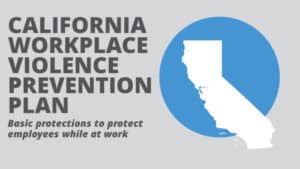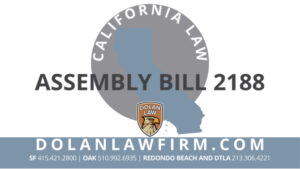
Ana from San Francisco writes: I am ending my maternity leave next week. I would like to send an e-mail to my manager to ask about my employer’s policy on lactation breaks and request a private room where I can express milk for my baby. However, I am worried that I may be asking for too much since the company is small (only 25 employees in my office but approximately 75 in the Bay Area) and I already took a lot of time off after giving birth for my recovery and for baby bonding. I do not have my own office and I do not want to pump in a bathroom stall, as I am worried that it would be unsanitary. I heard San Francisco has extra protections for nursing mothers. What are my rights?
Thank you for your question Ana and congratulations on your baby. I am glad that you were able to take sufficient time after giving birth for your own recovery and for baby bonding. You are correct, San Francisco increased protections for nursing mothers and expands the existing requirements for San Francisco employers under federal and California law beginning on January 1, 2018.
Under the Federal Fair Labor Standards Act (which applies to 50 or more employees), employers must provide reasonable break time for an employee to express breast milk for one year following the birth of a child in a private location other than a bathroom that is shielded from view and free from intrusion from co-workers and the public. The California Labor Code requires employers to provide a reasonable amount of break time to accommodate employees who want to express milk for their baby and to make reasonable efforts to provide the employee with a room, other than a toilet stall, in close proximity to the employee’s work area.
Under San Francisco’s Lactation in the Workplace Ordinance (which applies to nearly all San Francisco employers as there are no minimum employee threshold that may exempt smaller employers from coverage) the lactation location must also:
- be available as needed;
- be safe, clean and free of toxic hazardous materials;
- have a place to sit, a table or desk or surface on which to place a breast pump and other personal items;
- have access to electricity, a sink with running water and a refrigerator.
The lactation location may be designated for other purposes but employees must be notified that lactation use takes priority over other uses for the room.
Moreover, the employer must maintain a written lactation accommodation policy which includes a statement of the right to request a lactation accommodation, the process for requesting accommodation, state that if in response to a request for accommodation the employer does not provide the accommodation, the employer must provide a written response which identifies the basis for denial of the request, notice that retaliation in response to a request is prohibited. This policy must be distributed upon hire, included in any employee policy handbook, and must be provided to any employee who asks about or requests pregnancy or parental leave.
You may contact San Francisco’s Office of Labor Standards Enforcement (“OLSE”) which is responsible for enforcing the Ordinance or consult with an attorney to protect your rights. You may also be interested in the Pregnancy Rights and Job Protection Workshop that the Dolan Law Firm will be hosting with the Filipino Bar Association of California (FBANC) on March 10th from 10:30 am to 12:00 pm. This free workshop will cover your workplace rights during and after pregnancy. Topics will include:
- How much leave am I entitled to?
- Can I be forced to use my PTO during my leave?
- Am I entitled to paid leave?
- Am I entitled to an accommodation if there are some job duties I can’t perform?
- Can I be forced to take an early leave of absence if I’m still able to do my job?
- Can my employer stop my health benefits while I’m on leave?
- If I’m breastfeeding, can I take additional breaks when I return to work?
To RSVP, go to https://www.eventbrite.com/e/pregnancy-rights-and-job-protection-workshop-tickets-42858387591










